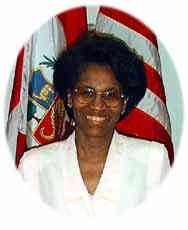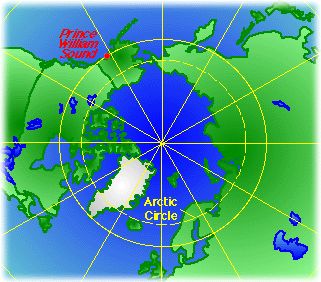
|
|






Five feet, three inch tall Female, wife of Denny Brijbasi, and
mother of Denise, Selina, and Trenton. Science (all
disciplines) teacher for twenty-four years, and currently teaching
International Baccalaureate Biology and Advanced Placement Biology at
Suitland High School, in Prince George's County, Maryland. Born and
raised in Guyana, South America, but lived, studied and worked in
Canada, West Indies, and the United States of America. Recipient of
several Outstanding Educator Awards - Prince George's County Public
Schools, Maryland State (OBTA), Governor's Recognition for Promoting
Academic Excellence, National Academy of Science & Joint Board of
Engineers, Woodrow Wilson National Fellowship Foundation Fellow, Access
Excellence Fellow, and Radioshack Tandy Scholars Award for 1999. I enjoy reading, traveling, camping, white water rafting, mountain climbing, biking, cooking, collecting figurines, international dolls, and antiques.

Myrtle's work during the summer of 1998
with Dr. Ben-David resulted in an
opportunity to collaborate with the Prince William Sound Science Center
during the summer of 1999. Join Myrtle in her summer endeavors!
Responses of River Otters to Oil Contamination:
A Controlled Study of Biological Stress Markers, Diving Physiology and
Foraging Success.
Dr. Merav Ben-David, Institute of Arctic Biology,
University of Alaska - Fairbanks
Previous studies on wild river otters inhabiting oiled shores in Prince William Sound, Alaska, have suggested that these otters suffer from chronic stress related to oil consumption. Oiled otters had lower body mass, larger home ranges, less diverse diet as well as elevated blood chemicals compared with otters from non-oiled areas. This indicates that oil contamination may have an effect on otter health through their ability to dive and catch prey. This project is designed to explore the effects of oil contamination on the health and behavior of river otters experimentally. Fifteen wild caught otters will be exposed to two levels of oil contamination under controlled conditions in captivity. Samples of blood, tissues and feces will be collected for chemical analysis. Results from these experiments with known doses will be invaluable for comparisons with similar data collected from free-living otters. Parcticipants will conduct behavioral observations on river otters foraging on schooling fish in captivity, and behavioral responses to fish to foraging otters, to explore the effects of oil contamination on diving and foraging success.

Visit the Student Pages at the ARCUS
Homepage:
http://www.arcus.org/TEA_StudentWebSite/arexhomepage.htm

June 1999
| Su |
Mo |
Tu |
We |
Th |
Fr |
Sa |
| -- |
-- |
1 |
2 |
3 |
4 |
5 |
| 6 |
7 |
8 |
9 |
10 |
11 |
12 |
| 13 |
14 |
15 |
16 |
17 |
18 |
19 |
| 20 |
21 |
22 |
23 |
24 |
25 |
26 |
| 27 |
28 |
29 |
30 |
-- |
-- |
-- |
July 1998
Return to top of page
|







